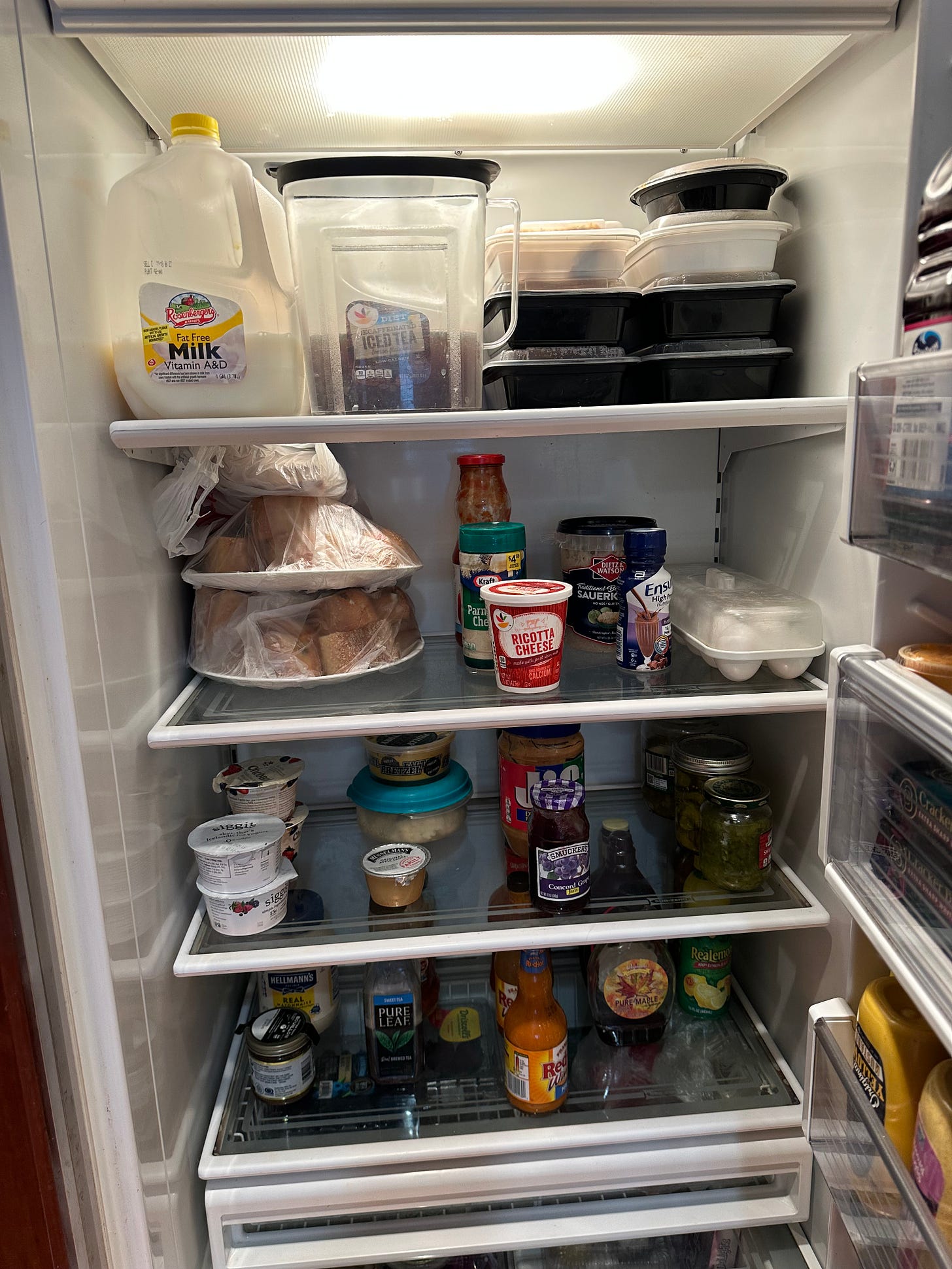How I Married My Mother
"The past doesn’t repeat itself, but it sure does rhyme." (attributed to Mark Twain)
I didn’t see it at first.
In fact, I was convinced I was doing everything right the second time around. After all, I had already learned this lesson, hadn’t I? —I had spent fourteen years in a marriage where I over-functioned while my partner coasted, where I carried the mental and emotional load while he casually enjoyed the benefits. I had finally walked away from that dynamic, sure that I’d never repeat it again.
And then? I found myself right back in it.
He was nothing like my ex-husband. He was nothing like my mother. And yet, somehow, I was still the one keeping things running, holding things together, while he drifted along, doing just enough to keep me from leaving but never enough to actually meet me.
Love or Emotional Labor?
At first, he seemed like a grown man. Thoughtful, engaging, capable. He said all the right things when I expressed what I needed in a relationship. And yet, time after time, when it came to actually following through—whether it was commitments, emotional support, or simply showing up as a partner—I found myself waiting. Reminding. Managing.
It wasn’t always big things, but it was constant things.
That’s when it hit me: I was the responsible one again. I was the one keeping things running smoothly, the one holding us together, while he got to exist in a relationship that only required him to say the right things, never do them.
And then, the deeper realization landed - I have a “type”: I had “married” my mother.
The Parentified Child Effect
It took me a long time to understand why this dynamic felt so familiar, even though my ex-husband and my last partner were nothing like my mother. But it wasn’t about them—it never is - it was about me.
I was the oldest child. My mother had subtle but consuming mental health struggles—anxiety, OCD, hoarding. Things that weren’t loud or dramatic, but still meant that, in many ways, I had to step up. I did things for her that she was afraid or incapable of doing, even as a child. I learned young that if something needed to happen, I would have to be the one to make it happen.
I was just “home” for my mother’s 80th birthday. While I was there, I cleaned out her fridge and threw away three whole trash bags of food that was rotten, moldy, or had expired as far back as 2020. It’s fascinating how, just days later, I found myself processing the layers of my attachment to my ex. Maybe because while the person filling the role might change, the pattern was about the deeper wound that kept drawing me back to people who needed me to clean up after them, who needed me to take responsibility for things they wouldn’t.
The Hardest Truth: Unconditional Love vs. Conditional Relationships
For years, I told myself that if I really loved someone, I should stay, be patient, accept them for who they were. After all, no one wants to be the kind of person who demands change from their partner or walks out the second things get hard. That’s what my parents did—love was conditional, based on whether you met their standards. And I never wanted to be like that.
So instead, I swung in the opposite direction. I over-accommodated. I accepted excuses. I believed that waiting was the same as loving.
But here’s what I finally learned:
Love can be unconditional, but relationships should absolutely have conditions.
A relationship must come with the basic conditions of effort, respect, and reciprocity. Without those, it’s not a partnership—it’s a one-person performance. You can love someone deeply and still walk away if they’re not meeting you where you need to be met. You can care about someone and still decide that the relationship isn’t working. You can wish them well while also wishing yourself the hell out of a situation that’s draining you.
Unconditional love means accepting someone for who they are.
A healthy relationship must have conditions.
What I had was one-sided. I gave patience, thoughtfulness, and commitment. I got complacency in return. And it wasn’t even malicious—it was just…passive. Like he knew I’d always be there, so why try harder?
When it’s put down on paper (or Substack editor) you may be wondering why I stayed - why anyone would hang on so long accepting “not good enough?”
Because giving up hope, as a child, is unbearable.
As children, if we let go of the hope that our parents will get better, we face the most terrifying uncertainty—what happens to us if they don’t? If they will never change, does that mean we are forever alone? We hold on because the alternative is too painful. That child part of us can “run the show” unconsciously if we let it.
But as adults, we can see something we couldn’t as children: Some people choose to stay stuck in their patterns. And that doesn’t mean we have to. It doesn’t mean we are doomed to a life of emotional abandonment, waiting for someone to change who never will. It means we get to make a different choice.
How Is This Familiar?
One of the most unsettling truths is that we almost inevitably will pick someone who triggers our wounds. It’s not because we want to suffer, but because we are drawn to what feels familiar. The dynamic we learned in childhood—the one where love was intertwined with responsibility—becomes the blueprint we unconsciously follow.
But the difference between repeating the pattern and healing it is in how the other person shows up. The best partners might trigger our wounds, but they don’t leave us managing the emotional fallout alone. They recognize the weight we’ve been conditioned to carry, and instead of handing us more, they help us set it down.
Maybe that’s the real shift—not avoiding triggers entirely but choosing someone who meets them with care instead of complacency.
And if all else fails, maybe the best relationship test is this: If your love life feels like cleaning out a hoarder’s fridge, it might be time to walk away.
Or at least, next time, date someone who knows how to throw out expired milk.
Baby steps.







This one really resonates.
Thanks Maureen. this rings so true. I married my mother twice, the first time was her negative attributes, for all the reasons you say so well.
The second timer I got it right; I married the joyful parts of my mother. My therapist when my first husband left me and the children said we identify with one parent and marry the other -- all quite subconsciously. You have pointed out key ways to bring the behavior to a conscious level.